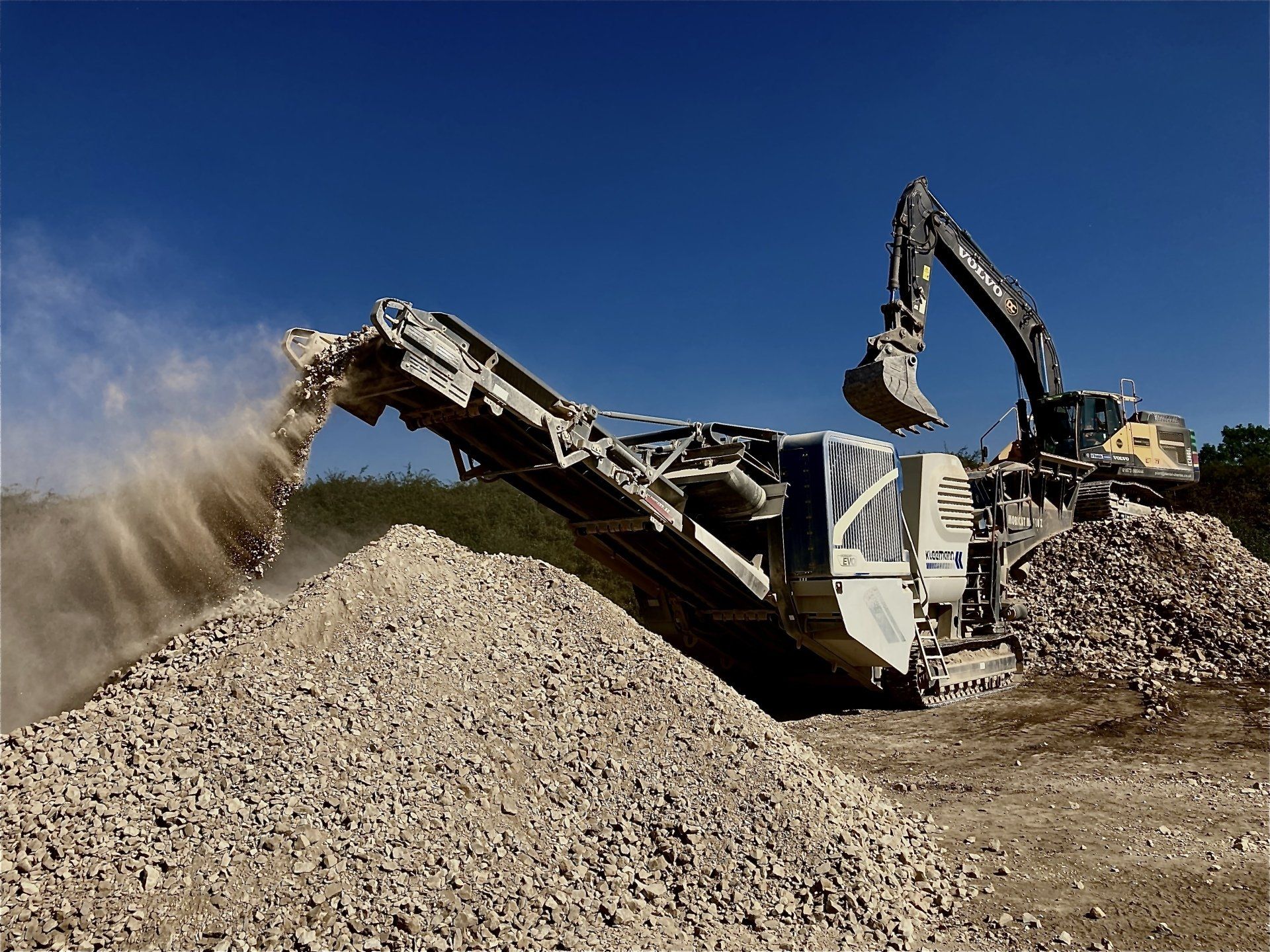Recycling Waste Aggregates
Recycling waste aggregates
Environmental Permitting is an area that Severn Compliance specialise in and it is no surprise that permits for treating waste from the construction and demolition sector are the most frequent that we deal with. This is because waste from the construction and demolition accounts for a high proportion of all the waste that is generated in the UK. This may surprise some people as they may not see soils and recycled aggregates as waste, but as a useable commodity. As a result, this is why many potential permitted activities are overlooked.
The rise in demand for building materials, associated costs and environmental impacts of quarrying virgin aggregates makes the use of recycled aggregates an appealing option to both buyers and returning to a product is a great example of the circular economy, but it is not as simple as it may sound.
In simple terms if a material is no longer required or ‘discarded’ then there is a high probability of something becoming a waste. As a result the majority of soils, brick, tile, concrete and stones from construction and demolition sites are waste. Invariably the waste is not in a condition where it can be used on the next project or indeed on the same project and as a result it will need to be treated.
To treat waste soils, brick, tile, concrete and stones an environmental permit will be required. There are two common situations. One the waste is treated on site and used again within the project or it removed from site and treated at a recycling facility.
Treating waste on the site of production
For treating brick, tile, concrete and stone wastes on site by crushing and screening usually requires the use of a mobile crusher and or screen, commonly known as mobile plant. These permits are applied for via the local authority where the mobile pant is stored when it is not in use.
The local authority is then notified of the plants use. The use of a crusher and screen allows the waste to be treated and used again within the project. Treatment of the waste allows contaminants such as metal and wood to be screened out, but also aggregates to be produced to a uniform size. At this point it is worth noting that if the waste has hazardous properties a mobile plant permit will be required from the Environment Agency to treat it.
One area of expansion in recent years has been the rise of the wash plant. The washing operation allows contaminants such as wood and plastic to be removed as well as soils, clays and grit. The result is a superior quality recycled aggregate.
Treating waste at a recycling facility
If waste is removed from a construction site and taken to another location to be treated via a method such as a screening, sorting, crushing, screening or a trommel an environmental permit will be required. It is worth noting that a previous blog focuses on the different types of environmental permits. In basic terms there are Standard Rules or Bespoke Environmental Permits. In simple terms Standard Rules permits are pre written permits where the operator must be able to meet both the operational rules and location criteria. If the Standard Rules cannot be a met a bespoke environmental permit is required.
If have dealt with numerous clients who have started a waste operation by accident, bringing soils and stones back to a yard and initially just storing them for use on another project. It is worth noting that this activity on its own requires an environmental permit. Over time the operation has grown and a mobile crusher and screen has been used to treat the waste. Without realising the site has become and illegal waste site in the eye of the Environment Agency and an environmental permit has been applied for to bring the site into compliance. These companies are often grab hire or tipper operators seeking to maximise the waste that they carry.
Luckily applying for an environmental permit for aggregate and soil recycling is much simpler than other waste operations due to a number of factors. Firstly, the waste is not flammable and as a result there is no requirement for a Fire Prevention Plan. The operations rarely require a sealed drainage and as a result the operations do not need to be carried out on a concrete pad. Occasionally due to environmental risk, dust and noise management plans may be required.
One area of expansion in recent years has been the rise of the wash plant. The washing operation allows contaminants such as wood and plastic to be removed as well as soils, clays and grit. The result is a superior quality recycled aggregate. This also means that the final product is of a higher consistency and as a result more desirable. There have been numerous permits not being varied to accommodate the new washing activity. No standard rules permits allow washing and as a result all wash plant permits are bespoke.
Another area that catches companies out is the storage and treatment of road planings. Again often staring as a small scale storage activity under a waste exemption, but growing into a full scale storage and processing facility. This activity can be carried out under a Standard Rules Permit if the rules can be met. However, if hazardous tar bound planings are to be treated a bespoke permit would be required



